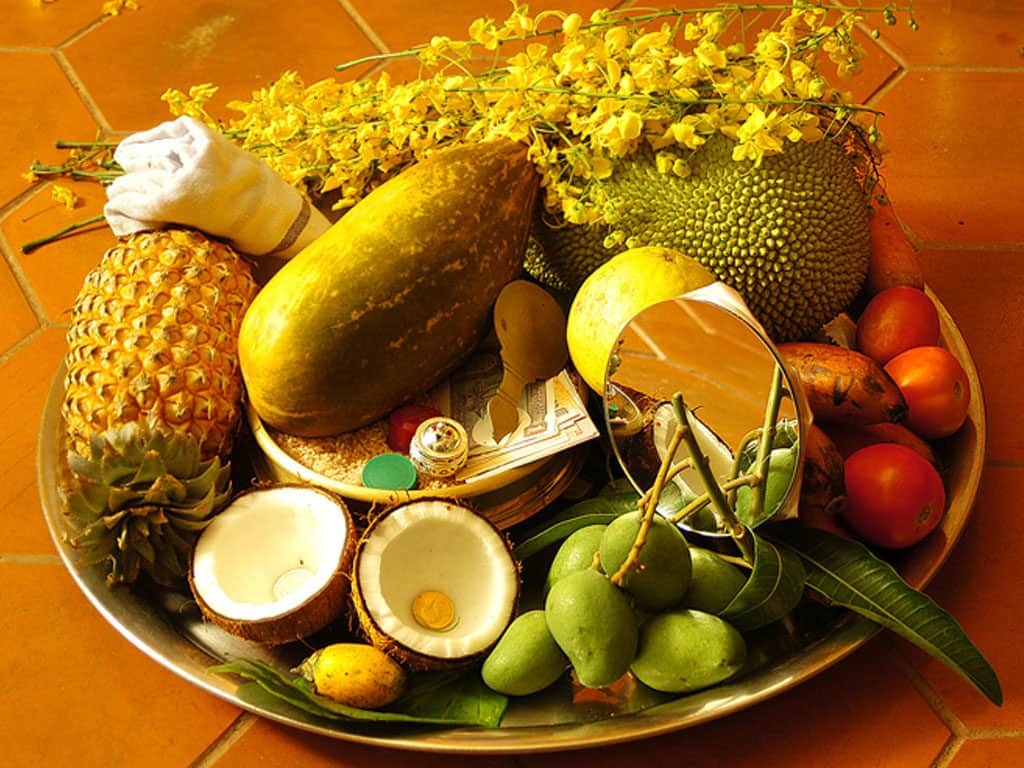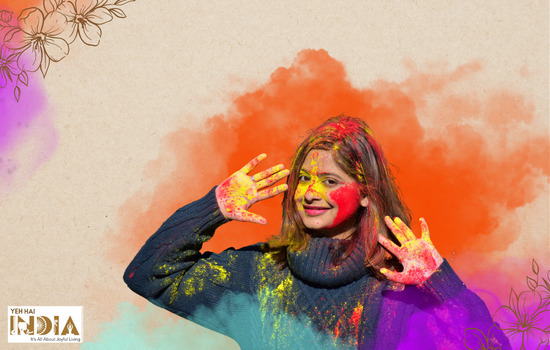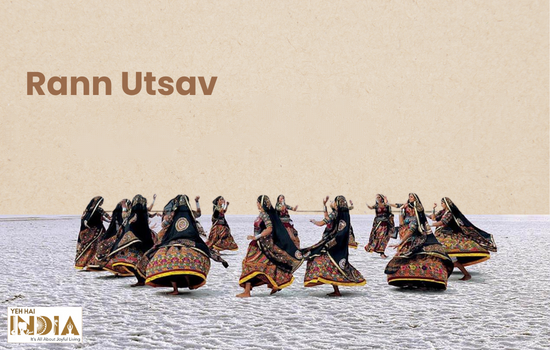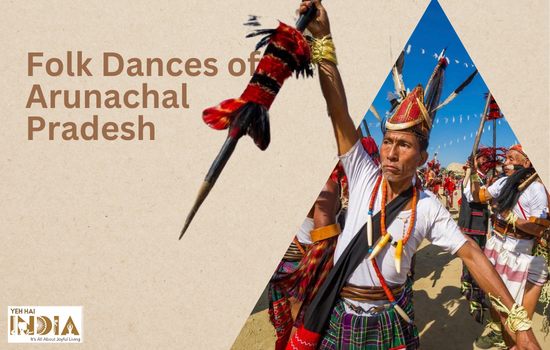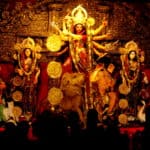An integral part of Indian culture is the stress we put on beginning things properly. Indian cultures take into consideration the position of the stars and planets to insure auspicious beginnings. Prayers are offered to God, especially to Lord Ganesha in order to remove potential obstacles before the start of any undertaking.
Meaning Of The Festival
In Kerala, the start of the Zodiac New Year is commonly known as Vishu. A perception of this festival is that they believe what one sees when one first opens their eyes on Vishu morning is an indication of what they can expect in the year to come.
Thus on this day, everyone attempts to only open their eyes to the auspicious image of Lord Vishu and a few other things, cumulatively called the Vishukkani. The Malayalam word kani translates to “that which is seen first”, so “Vishukkani” literally connotes “that which is seen first on Vishu”.
While the festival is called “Vishu” only in Kerala, the same “new beginning” or New Year festival is celebrated as Ugadhi in Andhra Pradesh and Karnataka, Gudi Padwa in Maharashtra, Bihu in Assam and Baisakhi in Punjab.
Formalities Of The Festival
Arranged in the family puja room the night before by the female head of the family, is the Vishukkani. It is a landscape of auspicious items, including images of Lord Vishnu, flowers, fruits and vegetables, clothes and gold coins.
Lord Vishnu is known to be the preserver of creation. In Jyotish, Indian astrology, Vishnu is seen as the head of Kaala Purusha, the God of Time. As Vishu marks the first day of the Zodiac New Year, it is a suitable time to offer oblations to Lord Vishnu.
The colour Gold as well as Gold coins are both fundamental of Vishukkani. A golden-yellow flower associated with Sri Krishna is used generously throughout the puja room. This flower only blooms when the sun is in its most illustrious position astrologically—the month surrounding Vishu. In the puja room, the flower is represents the sun itself, the eyes of Lord Vishnu.
The Vishukkani will also be surrounded with gold-coloured fruits and vegetables, such as bananas, jackfruit, etc.
Gold coins are symbolic of monetary prosperity, as well as cultural and spiritual prosperity, which the elders of the family must share openly with the younger generation.
Vishukkaineettam, the distribution of wealth, is another characteristic of the festival. It should be given freely and recognised with devotion. On Vishu, the highly affluent families will not only give money to their children but also their neighbours, and perhaps the entire village.
Last but not least, a spiritual book, such as the Bhagavad-Gita, is definitely a part of the panorama of items. The book is the instrument used for attaining the eternal, non-perishable wisdom of the text as well as a symbol of that knowledge itself.
What It Means To The Malayali (People Of Kerala) Community
The festival holds religious importance in terms of beginning things on a new and positive note. Upon opening one’s eyes, one is overwhelmed with the glorious view of the Lord.
The setup also includes a mirror, which is symbolic of Bhagavati (Devi) but also shows our own face, reminding us that God is not an omnipresent feature seated in the heavens above but is someone within us. The mirror also points to the importance of making our mind pure enough to accept this truth unmodified.
The Vishukkani is taken outside to homes of the elderly, for them to not miss out on witnessing the deity due to their old age. The Vishukkani is also shown to the family cows as they are considered part of the community. At the same time, all aspects of nature, birds, trees and the rest are able to witness the Vishukkani as well.
Vishu is a festival of new beginnings in terms of spiritual and mental growth. Our lives should be filled with new light, good food, money and more knowledge. They believe that witnessing the Vishukkani as soon as one wakes up is good luck but the process doesn’t end there.
It must reflect in our thoughts, actions and deeds. The Malayalis also believe in spreading this new found joy, happiness and hope to their loved ones and other members of the community.



